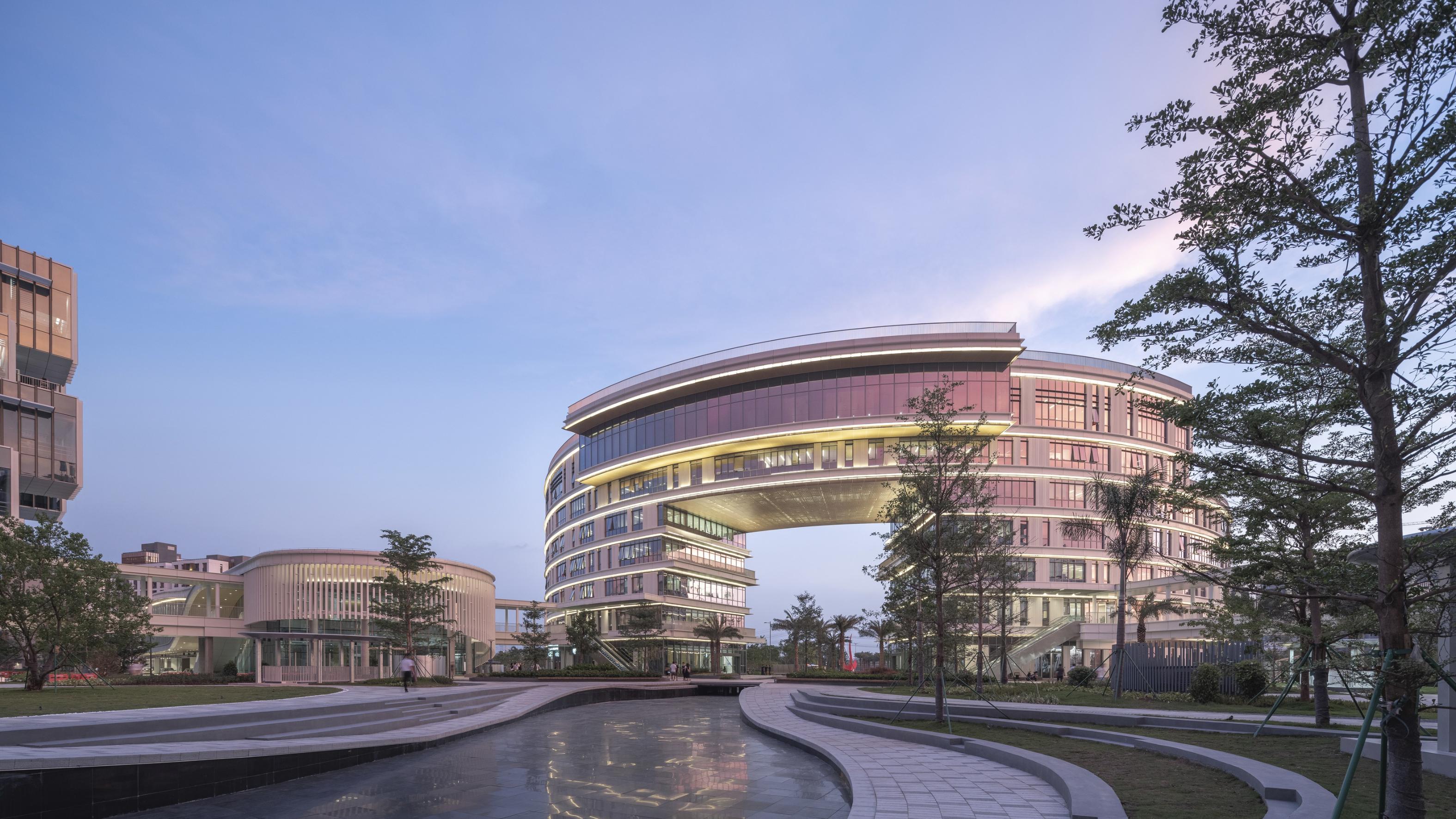 This undated photo shows the Hong Kong University of Science and Technology’s Guangzhou campus. (PHOTO PROVIDED TO CHINA DAILY)
This undated photo shows the Hong Kong University of Science and Technology’s Guangzhou campus. (PHOTO PROVIDED TO CHINA DAILY)
Universities in the Guangdong-Hong Kong-Macao Greater Bay Area ranked second in overall competitiveness among the world’s four bay areas, according to a recent ranking.
The 25 universities in the Greater Bay Area that made it into the ranking scored 55.06, just behind the New York Bay area, whose 66 universities scored 100, the Third-party University Ranking Indices shows.
Tokyo Bay area’s 36 universities and San Francisco Bay Area’s eight were third and fourth, scoring 51.21 and 38.87, respectively.
A total of 1,929 universities from 100 countries and regions were covered in this year’s ranking. Among them, 135 are from the world’s four bay areas, accounting for 7 percent of the total
The indices, which are published annually, show the evaluations of world universities according to third-party organizations. A total of 1,929 universities from 100 countries and regions were covered in this year’s ranking. Among them, 135 are from the world’s four bay areas, accounting for 7 percent of the total.
Two universities in the Greater Bay Area ranked among the top 100, compared with 13 from New York Bay area, four from San Francisco Bay Area and one from Tokyo Bay area.
READ MORE: GBA youth exchange HQ unveiled in Guangzhou
Experts have called for greater collaboration among universities from Guangdong province and those from Hong Kong and Macao special administrative regions, so they can leverage their respective strengths to create synergy and enhance their overall competitiveness on the global stage.
With the growing trend toward educational integration in the region, a number of universities from Hong Kong have set up campuses in mainland cities of the Greater Bay Area.
ALSO READ: Haitang, Sanya inks deals with GBA firms, institutions
However, it is believed that policy coordination remains one of the biggest challenges for cross-border collaboration, and that includes issues ranging from courses offered, personnel placement, mutual recognition of degrees, taxation and visas.


